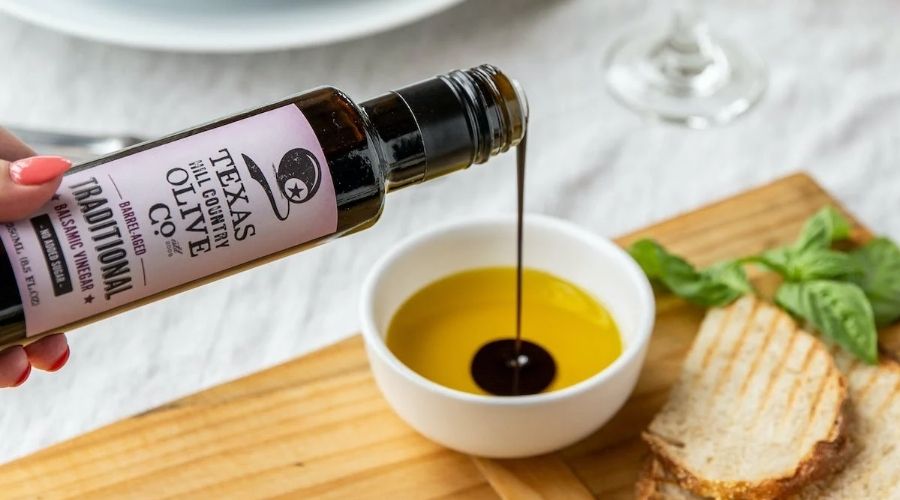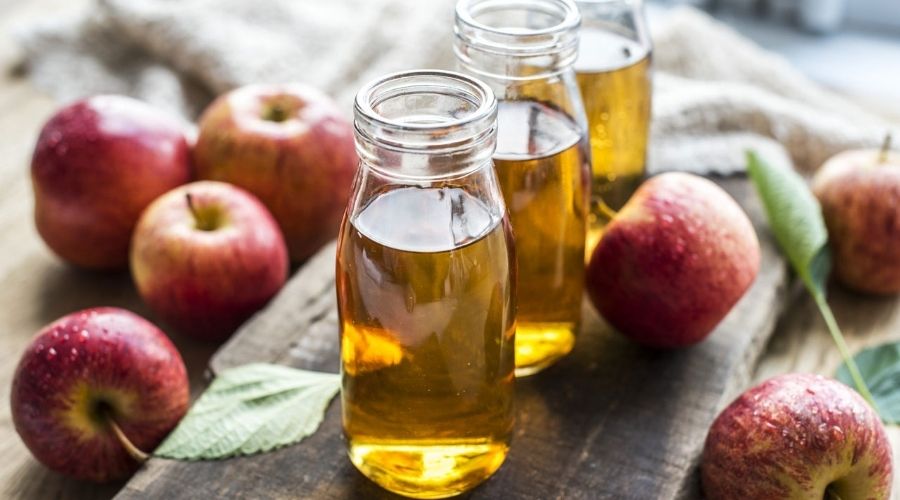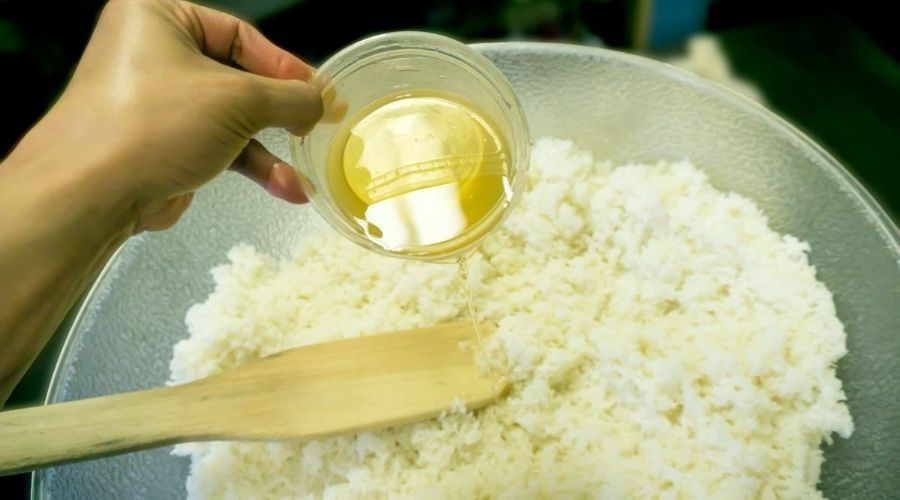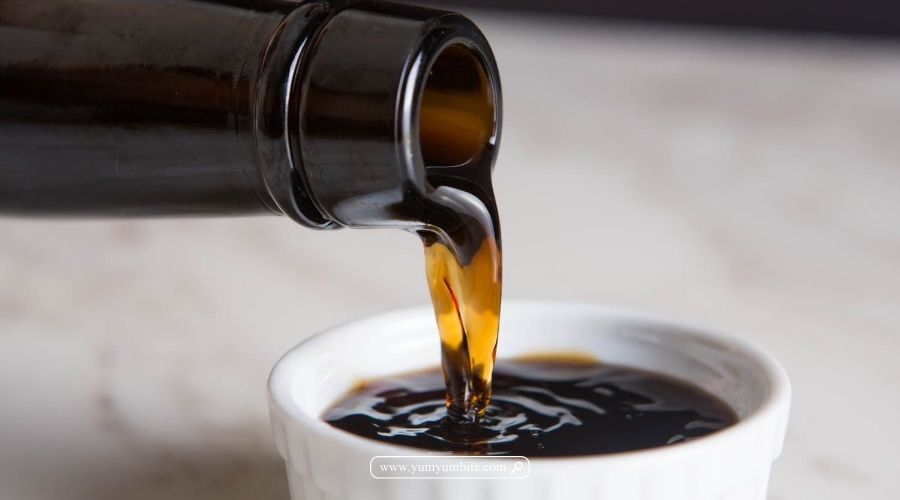Banyuls vinegar, with its rich and nuanced flavor, is a prized ingredient in many recipes, especially in French cuisine.
Its sweet, tangy, and complex profile makes it a unique addition to sauces, dressings, and marinades. However, there are times when you might find yourself without this specialty vinegar, or it might not be readily available.
In such cases, finding a suitable substitute becomes crucial to maintaining the intended taste and quality of your dishes.
In this blog, we explore 12+ effective substitutes for Banyuls vinegar, offering a range of options that can replicate its distinctive flavor profile.
Whether you need a replacement for a savory sauce or a sweet vinaigrette, these alternatives will help you achieve the desired results without missing a beat.
12+ Effective Substitutes for Banyuls Vinegar to Enhance Your Recipes
While Banyuls vinegar brings a unique flavor to the table, several alternatives can mimic its rich and complex taste. From sherry and balsamic vinegars to creative homemade mixtures, each substitute offers its own take on the sweet, tangy characteristics of Banyuls vinegar.
Understanding the nuances of these alternatives allows you to make informed choices depending on your recipe’s needs and available ingredients.
Sherry Vinegar
Sherry vinegar is a versatile substitute for Banyuls vinegar due to its similar complex flavor profile.
It has a rich, nutty taste with a touch of sweetness, making it a good match for recipes that call for Banyuls vinegar’s depth and richness.
This substitute works well in vinaigrettes, marinades, and sauces where you need a nuanced, slightly sweet acidity.
However, sherry vinegar can be slightly more acidic, so you may want to adjust the quantity based on the balance of flavors in your dish.
Red Wine Vinegar
Red wine vinegar is another suitable substitute for Banyuls vinegar, offering a robust flavor that can mimic some of the complexities of Banyuls. It has a tangy taste with fruity undertones, which can complement a variety of dishes.
This substitute is ideal for salads, braised meats, and reductions. Keep in mind that red wine vinegar lacks the sweetness of Banyuls vinegar, so adding a small amount of sugar or honey might help achieve a similar flavor balance.
Balsamic Vinegar

Balsamic vinegar, especially the aged variety, provides a sweet and tangy flavor that closely resembles the profile of Banyuls vinegar.
Its deep, caramelized taste can add a touch of complexity to your dishes. This substitute is particularly effective in dressings, glazes, and sauces where you want to impart a rich, sweet undertone.
Be cautious with the amount, as balsamic vinegar can be sweeter and thicker, so you may need to adjust the quantity and possibly thin it with a bit of water or vinegar if necessary.
Red Wine with a Splash of Honey
If you don’t have vinegar on hand, you can create a quick substitute using red wine combined with a splash of honey.
This mixture mimics the sweetness and acidity of Banyuls vinegar. To prepare, simply mix red wine with a small amount of honey and use it in recipes like braises, marinades, or dressings.
While this combination won’t perfectly replicate the complex flavors of Banyuls vinegar, it provides a reasonable facsimile with a touch of sweetness.
Adjust the honey to taste to match the flavor profile you desire.
White Wine Vinegar
White wine vinegar is a light and slightly acidic substitute that can work well in place of Banyuls vinegar.
While it lacks the deep, sweet notes of Banyuls, it provides a clean, crisp acidity that is useful in many recipes. This substitute is suitable for vinaigrettes, sauces, and dressings where a more delicate, less sweet acidity is acceptable.
To enhance the flavor, you might consider adding a touch of honey or a small amount of balsamic vinegar to mimic the sweetness of Banyuls vinegar.
Apple Cider Vinegar

Apple cider vinegar offers a fruity and slightly tangy flavor that can serve as an alternative to Banyuls vinegar.
Its natural sweetness and acidity can complement dishes where a mild, fruity acidity is desired. This substitute is particularly effective in salad dressings, marinades, and sauces.
Since apple cider vinegar is more tangy and less complex, adding a pinch of sugar or a splash of red wine could help balance the flavors more closely to Banyuls vinegar.
Champagne Vinegar
Champagne vinegar, with its light and delicate flavor, can be used as a substitute for Banyuls vinegar in recipes that require a subtle acidity without overwhelming the other ingredients.
Its mild sweetness and gentle acidity make it a suitable option for vinaigrettes, light sauces, and seafood dishes.
While it does not replicate the richness of Banyuls vinegar, it offers a refined and nuanced acidity that can enhance the overall flavor profile of your dish.
Malt Vinegar
Malt vinegar provides a distinctive flavor with a malty sweetness that can be a decent substitute for Banyuls vinegar. Its deep, rich taste with slight sweetness and acidity can be used in recipes where you want to add complexity.
This substitute works well in savory dishes such as stews, braised meats, and hearty sauces.
However, malt vinegar is stronger in flavor compared to Banyuls vinegar, so use it sparingly and adjust the other seasonings in your recipe accordingly.
Red Wine with a Touch of Maple Syrup
For a quick and effective substitute, mix red wine with a touch of maple syrup. This combination mimics the sweet and complex flavor profile of Banyuls vinegar. Red wine provides the acidity and depth, while maple syrup adds the sweetness.
This substitute works well in marinades, glazes, and dressings where you need both acidity and a hint of sweetness. Adjust the amount of maple syrup based on your taste preference, as too much can make the mixture overly sweet.
Port Wine
Port wine, known for its rich, sweet, and slightly spicy flavor, can be a good substitute for Banyuls vinegar in recipes that benefit from a deeper, more complex flavor.
Its sweetness and robust character are similar to Banyuls vinegar, making it suitable for use in sauces, reductions, and marinades.
Keep in mind that port wine is not as acidic as vinegar, so you might need to add a bit of regular vinegar or lemon juice to balance the acidity in your dish.
Rice Vinegar

Rice vinegar, with its mild, slightly sweet flavor, can be used as a substitute for Banyuls vinegar, especially in Asian-inspired dishes.
It provides a gentle acidity and sweetness that can complement salads, dressings, and stir-fries.
While rice vinegar does not have the same depth as Banyuls vinegar, it’s a versatile option that can work well when the boldness of Banyuls isn’t essential.
To add more complexity, you might include a touch of honey or a few drops of balsamic vinegar.
Cider Vinegar with a Dash of Soy Sauce
Combining apple cider vinegar with a dash of soy sauce can create a substitute that approximates the savory and slightly sweet flavor of Banyuls vinegar.
The apple cider vinegar provides the acidity, while the soy sauce adds a depth of umami and sweetness.
This substitute is particularly effective in recipes like marinades, braises, and stir-fries. Be cautious with the soy sauce, as it can be quite salty; start with a small amount and adjust to taste.
How to Make Banyuls Vinegar Substitute at Home
Creating a homemade substitute for Banyuls vinegar involves combining ingredients that can replicate its sweet, tangy, and complex flavor profile.
This recipe blends red wine with a touch of maple syrup to mimic the depth and sweetness of Banyuls vinegar, making it suitable for a range of dishes.
This substitute is ideal for those who may not have Banyuls vinegar on hand but still want to achieve a similar taste profile in their recipes.
Ingredients:
- 1/2 cup red wine
- 1 tablespoon maple syrup
- 1 tablespoon white wine vinegar (optional, for extra acidity)
- 1/2 teaspoon ground cinnamon (optional, for added depth)
Instructions:
- Combine Ingredients: In a small mixing bowl or jug, combine the red wine and maple syrup. If you desire a bit more acidity to match the profile of Banyuls vinegar more closely, add the white wine vinegar. If you’re using ground cinnamon, add it to the mixture to enhance the depth of flavor.
- Mix Thoroughly: Stir the ingredients together until the maple syrup is fully dissolved and the mixture is well combined.
- Adjust to Taste: Taste the mixture and adjust the sweetness or acidity as needed. If you prefer a sweeter substitute, add a little more maple syrup. For extra acidity, you can increase the amount of white wine vinegar.
- Let it Sit: Allow the mixture to sit for about 10-15 minutes to let the flavors meld together. This resting period helps the ingredients blend and develop a more balanced flavor.
- Use or Store: Use the substitute immediately in your recipe, or transfer it to an airtight container and store it in the refrigerator for up to one week. Shake well before using if it has been stored.
This homemade Banyuls vinegar substitute offers a practical solution when you’re in need of a similar flavor profile but don’t have Banyuls vinegar on hand.
By combining red wine with maple syrup and optionally adding white wine vinegar and ground cinnamon, you can replicate the sweet, tangy, and complex notes characteristic of Banyuls vinegar.
This substitute works well in a variety of dishes, from vinaigrettes to marinades and sauces.
With this recipe, you can maintain the rich flavors of your dishes even when you need a quick and easy alternative.
Experiment with this substitute to find the perfect balance for your culinary needs and enjoy the flexibility it brings to your cooking.
1. What can I use as a substitute for Banyuls vinegar in a recipe?
You can use several alternatives to replace Banyuls vinegar. Sherry vinegar, red wine vinegar, balsamic vinegar, or a combination of red wine with a touch of maple syrup are good substitutes. Each provides a different aspect of the Banyuls vinegar’s complex flavor profile.
For a similar sweet and tangy taste, try using sherry vinegar or balsamic vinegar, while red wine with maple syrup can mimic both sweetness and depth.
2. How can I replicate the sweetness of Banyuls vinegar if I’m using a more acidic vinegar?
To replicate the sweetness of Banyuls vinegar when using a more acidic vinegar like red wine vinegar, you can add a small amount of honey or maple syrup.
Start with a teaspoon of honey or syrup, mix well, and taste to adjust the sweetness as needed. This will help balance the acidity and provide a closer match to Banyuls vinegar’s profile.
3. Can I use balsamic vinegar as a substitute for Banyuls vinegar in savory dishes?
Yes, balsamic vinegar can be used as a substitute for Banyuls vinegar in savory dishes. It has a sweet and tangy flavor that can mimic the complexity of Banyuls vinegar.
However, balsamic vinegar is generally sweeter and thicker, so you may need to adjust the quantity and possibly dilute it with a bit of water or additional vinegar to match the intended taste and consistency.
4. How do I adjust the flavor if I’m using red wine with maple syrup as a substitute?
When using a combination of red wine and maple syrup as a substitute for Banyuls vinegar, taste the mixture and adjust as needed.
If it’s too sweet, add a small amount of white wine vinegar to increase acidity. If it lacks sweetness, add more maple syrup.
This flexibility allows you to tailor the substitute to better replicate the specific flavor profile of Banyuls vinegar.
5. Can I use apple cider vinegar as a substitute for Banyuls vinegar in dessert recipes?
Apple cider vinegar can be used as a substitute for Banyuls vinegar in dessert recipes, though it has a different flavor profile.
It’s milder and less complex than Banyuls vinegar. To more closely mimic Banyuls vinegar’s sweetness, you might need to add a bit of honey or maple syrup to apple cider vinegar.
This adjustment will help balance the acidity and bring a touch of sweetness similar to that of Banyuls vinegar.
References
- https://food52.com/hotline/15322-what-is-banyuls-vinegar-and-how-does-it-taste-compared-to-other-vinegars
- https://ruthreichl.substack.com/p/a-touch-of-acid/comments
- https://www.bhg.com/recipes/how-to/cooking-basics/vinegar-substitute/
- https://www.greedygourmet.com/ingredients/red-wine-vinegar-substitutes/
- https://missvickie.com/banyuls-vinegar-substitute/


